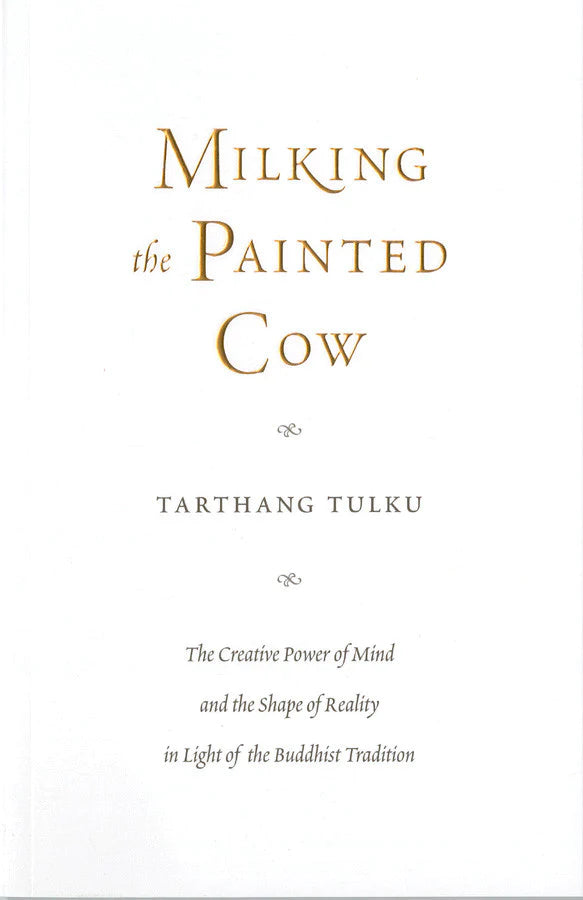Dharma publishing
Milking the Painted Cow
Milking the Painted Cow
"Milking the Painted Cow offers sound guidance for building a healthy foundation for a satisfying and productive spiritual life according to Buddhist tenets. A welcome addition to the growing library of Buddhist literature for Western readers, Milking the Painted Cow is strongly recommended reading which is as informative as it is inspired and inspiring." -Midwest Book Review
Based on thirty years of familiarity with the Western mind, the approach presented in this book grows out of decades of experimenting with ways to transmit the Buddha's teaching within a culture very different from his own. Pointing out the need for students new to the Dharma to become familiar with the vastness and complexity of the teachings, he points out traps and pitfalls faced by Westerners as they work to comprehend them. Here he shows how to investigate "illusion mind" without relying on the formal systems of Buddhist philosophy. How does it operate, how does it determine our well-being, and how can it can open to new knowledge?
With roots both in traditional approaches and the Western world view, Milking the Painted Cow emphasizes orderly study grounded in direct experience. In Part Two, Tarthang Tulku points out the challenges of studying Dharma today: the difficulties faced by the traditions in upholding the teachings in a changing world, the limits on Western knowledge of Dharma, and the difficulties of translating essential Buddhist terms. In Part Three, Tarthang Tulku explains why he has chosen to train his own students through work as a vehicle for transformation, and suggests specific practices that can make every moment an opportunity for insight and growth.
Viewed as a guide for using both practical and meditative experience to transform "illusion mind" into awakened mind, this book can help Western students avoid the pitfalls described here and learn how to draw nourishment from their roots in both Eastern and Western traditions. Applied in courses that focus on Western adaptations of Buddhism, it can offer valuable alternatives to less productive modification.
Verfügbarkeit für Abholungen konnte nicht geladen werden


